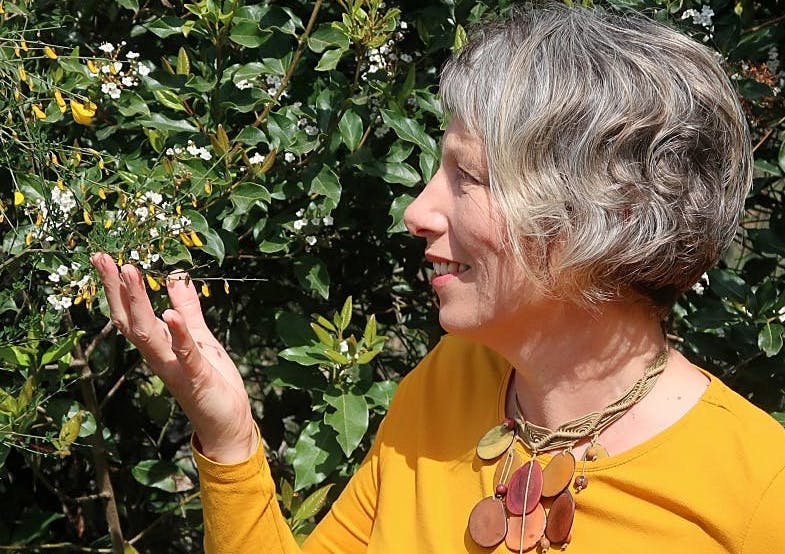Your 10 Positive Emotions And How To Boost Them

One of the most surprising things I learned when I studied Positive Psychology is that we only have 10 positive emotions. Although we have countless negative ones, you only need two hands to count the ones that make you feel good.
Scientists have discovered that when you feel good, your thinking becomes more expansive. In other words, you see a bigger picture and are open to information, which in turn helps you to be more creative and flexible.
In contrast, when you’re feeling bad, your mind tends to close off to new ideas and it’s hard to take in wider perspectives or dream big.
Whenever I “can’t see the wood for the trees”, it’s usually because I’m feeling stressed and overwhelmed. Taking time out to meditate, journal or simply do something fun can make a big difference to the way I approach and handle a situation.
As a bonus, the benefits of positive emotions outlast the moments in which we actually experience them. Moments of joy and playfulness build up physical, intellectual and psychological resources and connections with others that help us become more resilient, better at problem-solving and healthier overall.
Although we have a natural tendency to dwell on the negative (thanks negativity bias!), even on a bad day we have far more positive experiences than negative ones. If we choose to savour them, they can blossom into happy emotions that will help us to flourish.

What are these 10 positive emotions?
While rest of this list of positive emotions is in no particular order, the ultimate positive feeling, love, gets the #1 spot.
1. Love
It’s not necessarily all you need but love is the positive emotion that you feel in connection with other people and because of the proven physical and psychological benefits of this, it trumps the other 9.
Love doesn’t only improve our health; it enables us to trust, to form strong bonds with other people and to be part of communities. It brings out the desire to play and be curious, to savour experiences and to dream of bright futures.
It’s not about romantic love or even familial bonds as such. The benefits of love as a positive emotion are available to all of us at all times, if we learn how to cultivate it. In her book, Love 2.0: Finding Happiness and Health in Moments of Connection, renowned Positive Psychologist Barbara Fredrickson goes into much more detail about how love is not what you think it is and how you can get more of it in your daily life.
How to boost the love in your life: Develop a regular loving-kindness meditation practice in which you spend time actively and genuinely wishing other people well.

2. Joy
Joy is what we feel when we’re experiencing delight, whether that be at something that’s happening in the moment, or the prospect of getting something you want. You can’t feel joy when you feel threatened so it’s also associated with an underlying sense of safety and comfort.
It makes you gleeful and upbeat about your success, progress or well-being and brings out the playful side of you. This in turn can boost your creativity and lead you to aquire new skills in the long run.
How to get more joy in your life: Notice the things that light you up inside and make you feel good about life. These can be simple things like appreciating the way the sunlight reflects off an ornament at certain times of day, or the way your dog’s mouth curls up when she’s sleeping.
3. Pride
No, it’s not a sin to be avoided at all costs! Pride in what you’ve accomplished is a positive feeling that you would do well to cherish. Sadly, many of us, especially women, have been brought up to downplay our achievements for fear of making others feel bad or being seen to be bragging.
While I’m not suggesting you start lording it over everyone else, it’s really important to recognise the things we’ve worked for, no matter how big or small. When you take time to acknowledge your efforts and how far you’ve come, it gives you the confidence that enables you to dream even bigger and do great things in the world.
How to work on feeling pride as a positive emotion: Create a folder or a scrapbook that contains evidence of your many achievements over the years. These could be awards, qualifications, things you made, a challenge you overcame, times when you stepped out of your comfort zone, a project you completed or milestones achieved towards a long term goal, no matter how small.
Spend time looking through it and recalling the feelings you had when you achieved those things. Remember that you are capable and strong – here’s the proof!
4. Amusement
When we see something funny happen, especially if we happen to share that experience with someone else, it will typically make us laugh, or at least smile. Perhaps a child has said or done something funny or you see a misspelt sign that has a rude meaning.
Whatever the trigger, as long as the event is non-serious this shared amusement can lead to friendships, insights and ingenuity in creating other amusing experiences.
How to cultivate the positive emotion of amusement: Watching comedy shows or cat videos is a good place to start. You could also try laughing at yourself if you make a slip up instead of berating yourself. Spend time with people who share your sense of humour.
5. Serenity
When we feel safe, calm and free from uncertainty, it’s worth basking in the emotion of serenity. It may be harder to do when something like a pandemic throws certainty out of the window.
However, if you can savour the moments of tranquility and integrate more of them into your daily life, the way you see yourself and the world will begin to shift for the better.
How to improve the amount of serenity in your life: Meditation is perhaps the most obvious way to nurture moments of calm and peacefulness in your life. There are many ways of meditating so find a practice that works for you.

6. Gratitude
Think about the way you feel when someone does something nice for you just for the sake of it, or pays you an unexpected complement. If you can appreciate the altruistic gift at face value, and feel thankful to whoever or whatever is responsible, that’s what gratitude feels like as an emotion.
This can actually be a tricky positive emotion to experience, especially for people who have a hard time receiving things or who have low self-worth.
I have no problem feeling grateful for the good things in my life: loved ones, a pleasant home and garden, food to eat, money in the bank, fresh air etc.. In fact, when looked at through the lens of Positive Psychology, these feelings probably fall under Joy rather than Gratitude.
However, I have had to learn how to gracefully accept complements without looking for ulterior motives and to receive acts of kindness from other people without feeling beholden to them in some way.
When you are able to receive with gratitude, it fosters a desire within you to give creatively, whether that’s in reciprocity to the person who gave to you, or to someone completely different, be they stranger or friend.
Heartfelt giving and receiving boosts your capacity for experiencing love and improves your social bonds.
How to feel more gratitude: The key turning point for me was understanding that people get genuine pleasure from giving. By rejecting or diminishing their gift/complement with words like “Oh, you shouldn’t have!” or explaining why their complement is invalid, you deny them the positive emotions they get from doing something nice for other people.
Next time you’re on the receiving end, try turning the focus away from you and back to the giver by acknowledging what a difference the gift will make to you and, more importantly, how it shows what a thoughtful person they are.
7. Awe
Awe is one of my favourite positive emotions and I experience it most often when I contemplate nature. It’s the feeling of being overwhelmed by greatness so it’s hardly surprising that nature evokes the wow factor.
Feeling awe makes you more open to new concepts and enables you to see yourself as part of something bigger.
How to get more awe in your life: Get curious about nature. Every part of nature’s systems is unbelievably intricate and interdependent and science has barely scratched the surface of understanding the way things work.
As well as getting out in nature, watch some nature programmes, e.g. anything by David Attenborough, or read some books.
The Hidden Life of Trees by Peter Wohlleben will blow your mind or start with something closer, i.e. your own body, with Bill Bryson’s The Body: A Guide for Occupants.

8. Inspiration
When you are impressed by what other people are capable of, be it in terms of creativity, generosity, entrepreneurship, courage or strength, you experience inspiration.
Other people’s skills and achievements may inspire you to improve your own skills or be a ‘better’ person in some way.
How to feel more inspiration: Think of an area of your life that you’d like to improve and look for examples of people who have set an inspiring example. They don’t have to be the top of their field if you find that too intimidating; having a role model can motivate you to aspire to your own form of excellence.
9. Hope
Hope is the emotion you feel when you want something to happen or be true. Even when the actual situation is dire, you yearn for things to change for the better. Hope fuels our capacity for inventiveness as we get creative in finding solutions to seemingly insurmountable problems.
It also leads to resilience in the face of trying circumstances. Like pandemics.
How to be more hopeful: If you have a tendency towards pessimism, it can be hard to feel hope. Your expectations really do shape your reality to some extent so if you can shift your expectations towards a more positive outcome, you’ll begin to feel hope.
Instead of dreading the busy morning ahead of you and anticipating stress and complications, try imagining everything going smoothly with you feeling calm, in control and efficient.
Pay attention to all the times when things do go well to reinforce the fact that your doom and gloom predictions are rarely true.
10. Interest
When every day is predictable, life can feel a little stale so it’s good to keep things fresh. Novelty is exciting, as is mystery, as long as it’s not threatening.
When we are interested in something, we explore it in more depth, which may lead us to venture beyond our comfort zones. In doing do, we learn new things and life becomes more interesting, which gives us more energy and enthusiasm.
How to add more interest to your life: Be playful and experiment. Make a point of carving out time for yourself each week to try something new that nourishes or inspires you.
If you don’t enjoy it as much as you expected, no problem. Try a different activity next week. If you hit on a new passion, get stuck in and see where it leads. You might discover a whole new purpose in life!







